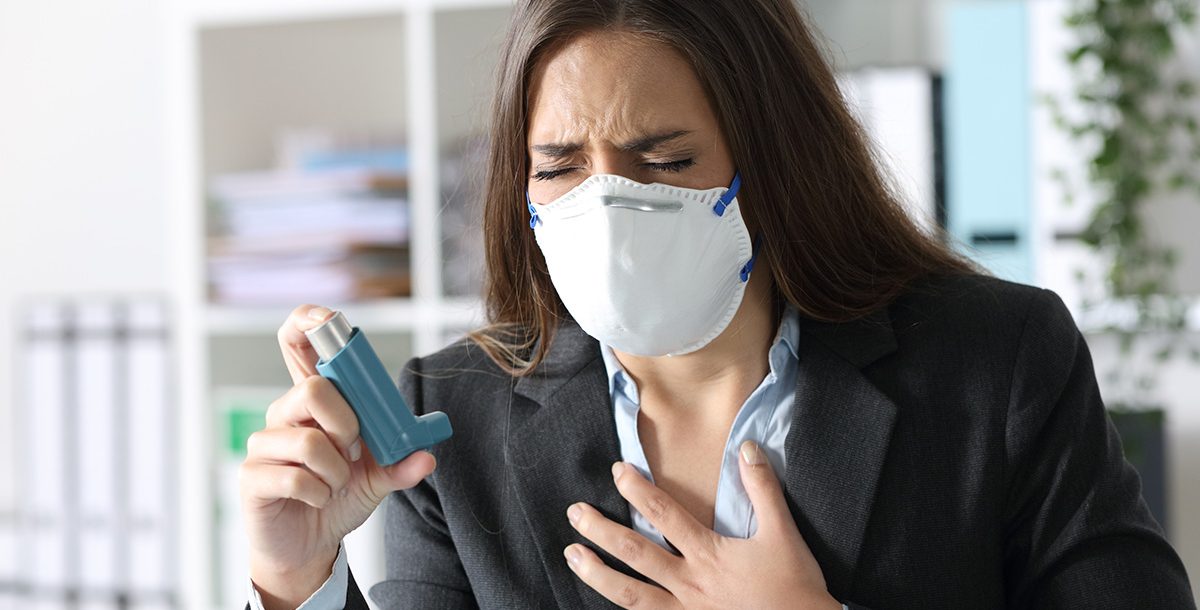Be careful about exposing yourself to COVID-19 if you suffer from asthma. This is important because you might be at a higher risk for becoming very ill from this virus. However, this doesn’t mean you are more likely to catch the virus compared to someone else.
We know that COVID-19 mainly impacts the lungs, throat and nose. Because of this, this virus could cause you to have an asthma attack, or even serious illnesses such as acute respiratory disease and pneumonia. If you have asthma, learn what you need to do to avoid COVID-19, as well as steps to take if you believe you’ve been exposed.
Don’t forget your asthma action plan
Stick to your normal treatment routine by taking your asthma medication. Your health care provider might even be able to extend your prescription. This way, you can have a multi-month supply available to avoid extra trips to the pharmacy. Also, if you do get sick, you’ll have medication during your time at home.
COVID-19 initially led to an albuterol inhaler shortage. However, in April the FDA approved a generic albuterol inhaler. You shouldn’t be having any issues getting the medications you need, so talk to your health care provider if you are.
Self-monitor for symptoms
People with asthma should self-monitor for the same COVID-19 symptoms as everyone else. They are:
- Headache
- Chills or fever
- Cough
- New loss of taste or smell
- Sore throat
- Difficulty breathing or shortness of breath
- Fatigue
- Muscle pains or body aches
Call your primary care provider immediately if you develop any of these symptoms. They will want you to self-isolate, monitor your symptoms and keep them updated. They might even want you to come into the office or receive emergency care if your symptoms become worse.
Protect yourself
Everyone, including those who suffer from asthma, should be following the Centers for Disease Control and Prevention (CDC) safety guidelines at this time. This includes washing your hands constantly throughout the day and avoiding touching your face area. This also includes wearing a face mask while out in public, which is safe for those with asthma to do.
Being aware of those around you is a huge part of protecting yourself, especially those outside of your immediate household. Try running errands during off-hours and make one big trip to the grocery store instead of little ones throughout the week. If possible, avoid public transportation. And when in a public area, maintain a distance of six feet or more from others.
Lastly, if anyone in your household becomes sick, have them isolate in one area of your home with their own room and bathroom.
Ask for help with disinfecting
Those who suffer from asthma are usually more sensitive to cleaning and disinfecting products. If this is true with your asthma, ask someone else in your household to help you with this task. With your safety in mind, this person should:
- Make sure you’re not in the room.
- Ventilate the room by opening windows and doors. Use a fan to push the air outside.
- Spray the cleaner onto a cloth or paper towel instead of directly on the surface they’re cleaning.
- Clean and disinfect items everyone touches. These include phones, light switches, keyboards, toilets, faucets and doorknobs.
- Avoid using disinfectants that can trigger an asthma attack.
Stay updated on what Bon Secours is doing related to COVID-19.





